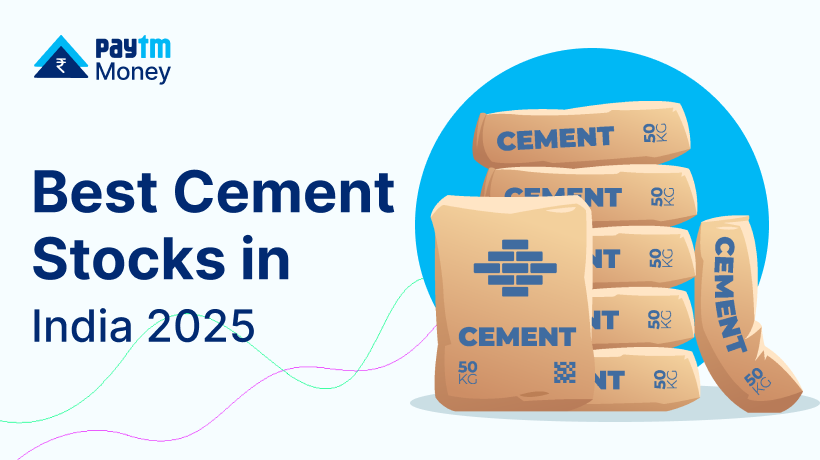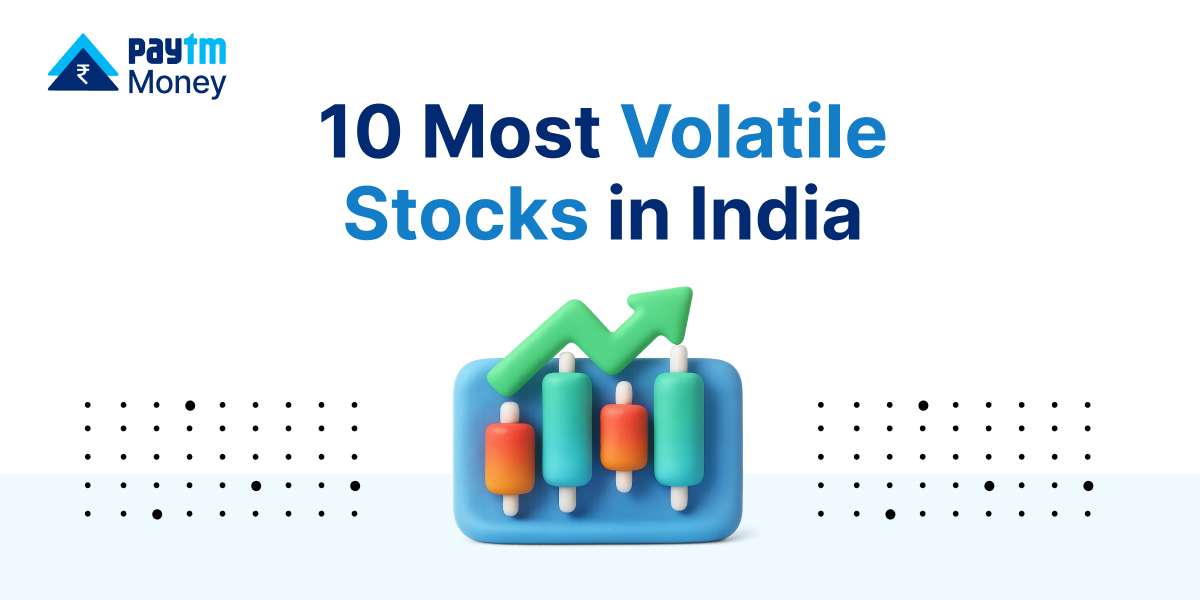Introduction
The cement industry is a fundamental pillar of India’s infrastructure development, vital to urbanisation and industrial growth. With the government’s focus on boosting infrastructure projects, the demand for cement is expected to surge. This article explores the best cement stocks in India to invest in 2025, examining their market performance, growth strategies, and future potential.
- Introduction
- Why Invest in Cement Stocks?
- Best Cement Stocks in India 2025
- 1. UltraTech Cement Limited
- 2. Shree Cement Limited
- 3. Ambuja Cements Limited
- 4. ACC Limited
- 5. Dalmia Bharat Limited
- 6. Birla Corporation Limited
- 7. Ramco Cements Limited
- 8. JK Cement Limited
- 9. India Cements Limited
- 10. HeidelbergCement India Limited
- Key Metrics to Evaluate Cement Stocks
- Conclusion
- FAQ: Best Cement Stocks in India 2025
Why Invest in Cement Stocks?
1. Infrastructure Development
India’s robust infrastructure development plans, including roads, highways, and urban housing projects, drive significant demand for cement.
2. Housing Sector Growth
The rising urban population and government initiatives like “Housing for All” fuel growth in the housing sector, leading to increased cement consumption.
3. Government Initiatives
Programs like the Smart Cities Mission and the National Infrastructure Pipeline (NIP) are poised to enhance the demand for cement in the coming years.
4. Strong Market Fundamentals
Cement companies in India have demonstrated strong market fundamentals, with consistent demand growth, efficient operations, and steady revenue streams.
Best Cement Stocks in India 2025
1. UltraTech Cement Limited
UltraTech Cement, a subsidiary of the Aditya Birla Group, is India’s largest grey cement manufacturer.
Market Capitalization: ₹3.7 trillion
Growth Strategy: Expansion of production capacity and acquisition of smaller cement plants.
Future Prospects: Strong presence across India, focusing on sustainability and innovation.\
2. Shree Cement Limited
Shree Cement is known for its efficiency in production and strong market presence in the northern and eastern parts of India.
Market Capitalization: ₹1.08 trillion
Innovation: Use of alternative fuels and energy-efficient processes.
Growth Plans: Expansion into new markets and increasing production capacity.
3. Ambuja Cements Limited
Ambuja Cements, part of the Holcim Group, is one of India’s leading cement manufacturers with a strong focus on sustainable practices.
Market Capitalization: ₹1.4 trillion
Sustainability: Commitment to reducing carbon emissions and enhancing energy efficiency.
Strategic Focus: Strengthening the supply chain and expanding market reach.
4. ACC Limited
ACC Limited, also a part of the Holcim Group, has a significant presence in the Indian cement industry and a wide range of cement products.
Market Capitalization: ₹339 billion
Technological Edge: Adoption of cutting-edge technology to improve product quality and efficiency.
Future Growth: Expansion of production facilities and focus on premium products.
5. Dalmia Bharat Limited
Dalmia Bharat is one of the fastest-growing cement companies in India, and it is known for its innovative products and sustainability initiatives.
Market Capitalization: ₹443 billion
Innovation: Introduction of new products like blended cement.
Growth Strategy: Geographical expansion and capacity augmentation.
6. Birla Corporation Limited
Birla Corporation is an established player in the cement industry, with a diversified product portfolio catering to various market segments.
Market Capitalization: ₹97 billion
Strategic Initiatives: Upgradation of existing plants and increasing production capacity.
Market Potential: Strong foothold in central and eastern India.
7. Ramco Cements Limited
Ramco Cements is a leading cement company in South India, known for its superior product quality and strong brand presence.
Market Capitalization: ₹247 billion
Expansion Plans: Increasing capacity in existing plants and setting up new facilities.
Strategic Focus: Enhancing distribution network and customer reach.
8. JK Cement Limited
JK Cement is a well-known player in the white cement and wall putty segment, with a growing presence in the grey cement market.
Market Capitalization: ₹532 billion
Future Growth: Diversification into the grey cement market and product range expansion.
Innovation: Continuous product innovation to meet evolving customer needs.
9. India Cements Limited
India Cements is a key player in the southern Indian market, focusing on domestic and export markets.
Market Capitalization: ₹117 billion
Growth Strategy: Modernization of plants and capacity expansion.
Future Outlook: Benefiting from infrastructure growth in South India.
10. HeidelbergCement India Limited
HeidelbergCement India, a subsidiary of HeidelbergCement Group, focuses on India’s central and southern regions.
Market Capitalization: ₹47 billion
Innovation: Emphasis on sustainability and cost-efficiency.
Strategic Focus: Expansion of footprint and introduction of high-performance products.
Key Metrics to Evaluate Cement Stocks
1. Capacity Utilization
Higher capacity utilisation indicates efficient operations and strong demand for the company’s products.
2. Market Share
A larger market share reflects a company’s competitive advantage and ability to meet market demand.
3. Profit Margins
Healthy profit margins demonstrate effective cost management and pricing strategies.
4. Debt Levels
Low debt levels ensure financial stability and the ability to invest in growth initiatives.
5. Return on Equity (ROE)
A high ROE indicates effective management and the ability to generate shareholder returns.
Risks Associated with Cement Stocks
Raw Material Price Volatility: Fluctuations in the prices of raw materials like limestone and coal can impact production costs.
Environmental Regulations: Stricter environmental norms may require additional investments in sustainable practices.
Economic Slowdowns: Slowdowns in the economy can reduce infrastructure spending, affecting cement demand.
Conclusion
Cement stocks in India present a robust investment opportunity driven by the country’s infrastructure growth, housing sector expansion, and government initiatives. Companies like UltraTech Cement, Shree Cement, and Ambuja Cements are well-positioned to benefit from these trends. By evaluating key metrics such as capacity utilisation, market share, and profit margins, investors can identify the best cement stocks in India to invest in for 2025, ensuring a diversified and growth-oriented portfolio.
FAQ: Best Cement Stocks in India 2025
1. Why should I invest in cement stocks in India?
Investing in cement stocks in India is a promising option due to the country’s extensive infrastructure development plans, rising urbanisation, and government initiatives like “Housing for All” and the Smart Cities Mission, which drive increased demand for cement.
2. Which are the top cement stocks to invest in for 2025?
Top cement stocks in India for 2025 include UltraTech Cement Limited, Shree Cement Limited, Ambuja Cements Limited, ACC Limited, and Dalmia Bharat Limited.
3. How does the government’s infrastructure development impact cement stocks?
Government infrastructure projects such as highways, bridges, and urban development directly boost cement demand, positively affecting cement companies’ revenue and growth prospects.
4. What are the key factors when investing in cement stocks?
When investing in cement stocks, consider factors such as capacity utilisation, market share, profit margins, debt levels, and return on equity (ROE) to assess the company’s operational efficiency and financial health.
5. What are the risks involved in investing in cement stocks?
Risks include raw material price volatility, environmental regulations, and economic slowdowns, which can impact production costs, operational compliance, and overall demand for cement.
6. How does capacity utilisation affect cement companies?
Higher capacity utilisation indicates that a cement company efficiently uses its production capacity, which usually translates to better profitability and market demand.
7. Are cement stocks a good long-term investment?
Cement stocks can be a good long-term investment, given India’s ongoing infrastructure development, urbanisation, and supportive government policies, which suggest a steady demand for cement.
8. How do environmental regulations impact cement companies?
Stricter environmental regulations may require cement companies to invest in more sustainable practices and technologies, potentially increasing operational costs and leading to long-term benefits such as improved efficiency and compliance.
9. What role does market share play in evaluating cement stocks?
Market share reflects a company’s competitive position in the industry. A larger market share indicates a strong market presence and the company’s ability to capture demand effectively.
10. How can I start investing in cement stocks in India?
To start investing in cement stocks, open a brokerage account, research the companies you’re interested in, analyse their financial performance, and consider seeking advice from a financial advisor to make informed investment decisions.
Disclaimer: Investments in the securities market are subject to market risks, read all the related documents carefully before investing. Registration granted by SEBI, enlistment with BSE and certification from NISM in no way guarantee performance of the Research Analyst or provide any assurance of returns to investors. Paytm Money Ltd SEBI Reg No. Broking – INZ000240532, Depository Participant – IN – DP – 416 – 2019, Depository Participant Number: CDSL – 12088800, NSE (90165), BSE (6707), SEBI reg No. Research Analyst – INH000020086. Regd Office: 136, 1st Floor, Devika Tower, Nehru Place, Delhi – 110019. For complete details, please visit ; https://www.paytmmoney.com






